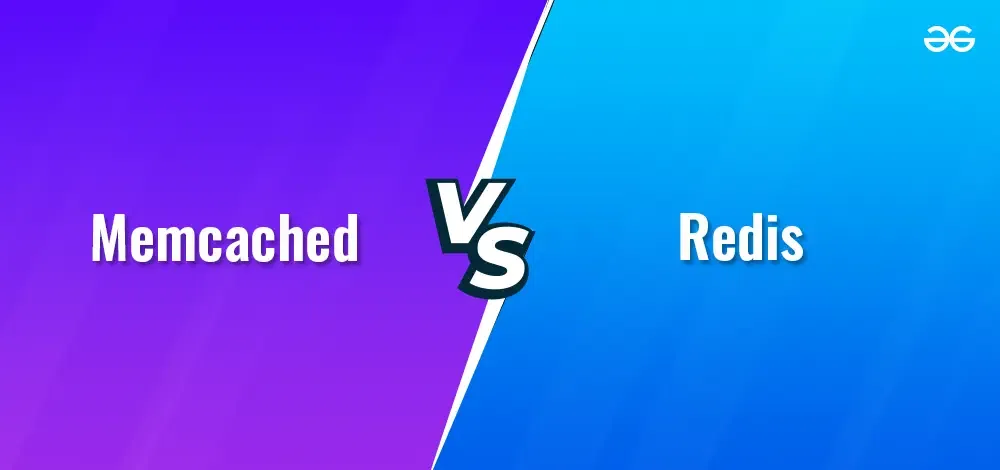Memcached vs. Redis
Last Updated :
06 Mar, 2024
Memcached and Redis are two of the most popular in-memory data stores used for caching and improving the performance of web applications. While both serve similar purposes, they have distinct features and use cases that set them apart. In this article, we’ll compare Memcached and Redis in terms of their features, performance and use cases to help you choose the right solution for your application.

What is Memcached?
Memcached is a high-speed, distributed, in-memory caching system used to speed up dynamic web applications by storing data in memory. It works as a key-value store, where data is accessed using unique keys. Memcached is lightweight, simple to use, and is commonly used for caching database query results, storing session data, and accelerating website performance.
Redis is an open-source, in-memory data structure store known for its speed and versatility. It can be used as a database, cache, and message broker, and supports various data structures such as strings, lists, sets, and hashes.
- Redis is often used in applications requiring high-performance, low-latency access to data, such as real-time analytics, caching, and messaging queues.
- Its simplicity, speed, and rich feature set have made it a popular choice among developers.
Memcached vs. Redis
Below are the differences between Memcached and Redis.
| Features |
Memcached |
Redis |
| Data Structures |
Key-Value Store |
Supports various data structures (strings, lists, etc.) |
| Data Persistence |
Does not support data persistence |
Supports data persistence to disk |
| Eviction Policies |
Supports LRU (Least Recently Used) and others |
Supports multiple eviction policies including LRU, LFU (Least Frequently Used), and others |
| Transactions |
Does not support transactions |
Supports transactions for multiple operations |
| Pub/Sub Messaging |
Does not support pub/sub messaging |
Supports pub/sub messaging |
| Data Replication |
Supports replication for high availability |
Supports replication and clustering for high availability |
| Scalability |
Limited scalability options |
Offers better scalability options, including clustering |
| Advanced Features |
Basic functionality |
Advanced features like pub/sub and transactions |
Best Scenarios for Memcached and Redis

Share your thoughts in the comments
Please Login to comment...